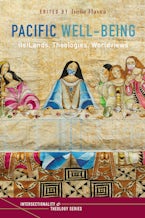New Wineskins
A New Approach to Original Sin and the Redemption
Imprint: Resource Publications
Evolutionary psychologists have shown that we have inherited from the higher animals and primitive humans certain instincts which were necessary for survival in prehistoric times, but which incline humans to hurt other humans. I call them the Antisocial Instincts, and I propose that they replace the doctrine of Original Sin.
Jesus did not come to die for our sins. The idea that God had to sacrifice his only son to make things whole is a repugnant idea. Jesus came to teach, and his principal ethical teachings can be organized into five Precepts, which directly oppose the Antisocial Instincts in humans and their institutions. Teaching them is Jesus's principal redemptive action.
Jesus did not intend to accomplish the redemption by himself. He intended that his followers complete his redemptive activity by following his five Precepts and using them to reform humanity's social and political institutions. By doing so, we can become followers of Jesus in his redemptive activity, and in this activity find meaning, hope, freedom, and authenticity.
Patrick J. Amer practiced law in Cleveland, Ohio for forty-one years, and now lives in Bluffton, South Carolina. In his thirties, he left the Christian faith. In his fifties and sixties he returned to the church, studied Christian sources, and began formulating his own approach to Christian theology.
“Works of theological significance come not only from the pens of academics. Retired attorney and independent scholar, Patrick Amer, has forged a fresh path for the modern Christian’s journey toward adult discipleship. This creative, scholarly work is stunning in its breadth and insight.”
—Donald Cozzens, author of Notes from the Underground: The Spiritual Journal of a Secular Priest
“Sin, salvation, and spirituality define the core narrative of Christian faith. This book presents the shortest, clearest, and most incisive critique of these traditional doctrines that I’ve seen. More importantly, Amer also offers a coherent, sound, and spiritually inspiring way of retrieving the tradition in an evolutionary biological and psychological framework. This book is a new requirement for courses in Christology because it promotes a discussion that cannot responsibly be ignored in our time.”
—Roger Haight, SJ, Union Theological Seminary











